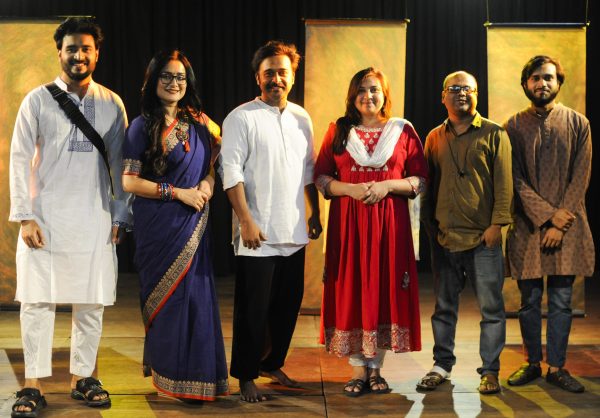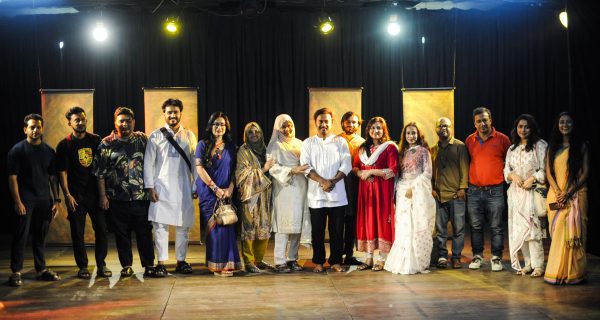The Last Illusion
The Last Illusion
The Last Illusion is a powerful Bengali stage drama inspired by Eugene O’Neill’s The Iceman Cometh. Set in a dimly lit old bar in the heart of a city, the play brings together a group of broken individuals—each haunted by shattered dreams, moral compromises, and personal losses. Their fragile refuge is disrupted by the arrival of Iqbal, a mysterious figure who knows too much. Through probing conversations and emotional confrontations, Iqbal forces each character to confront their buried truths and hidden pasts. What follows is a cathartic journey from illusion to self-realization, exposing the painful yet redemptive power of truth.
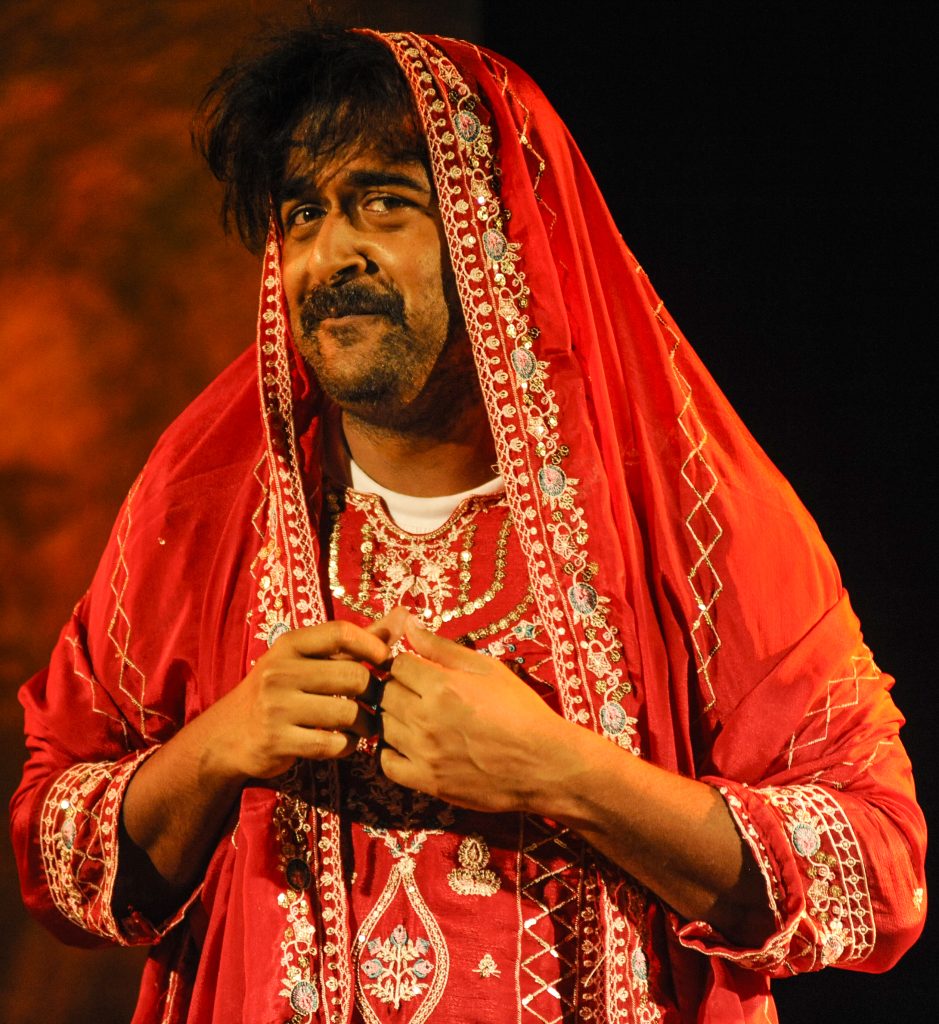
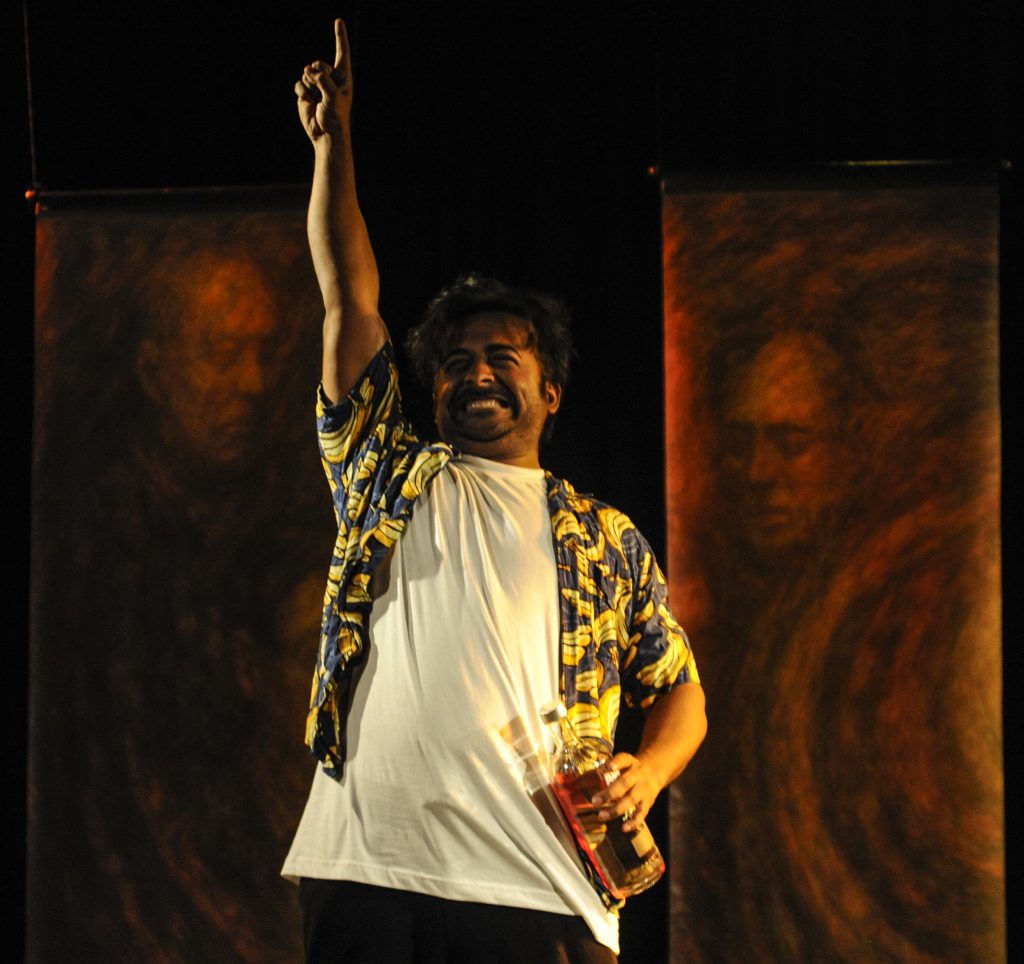
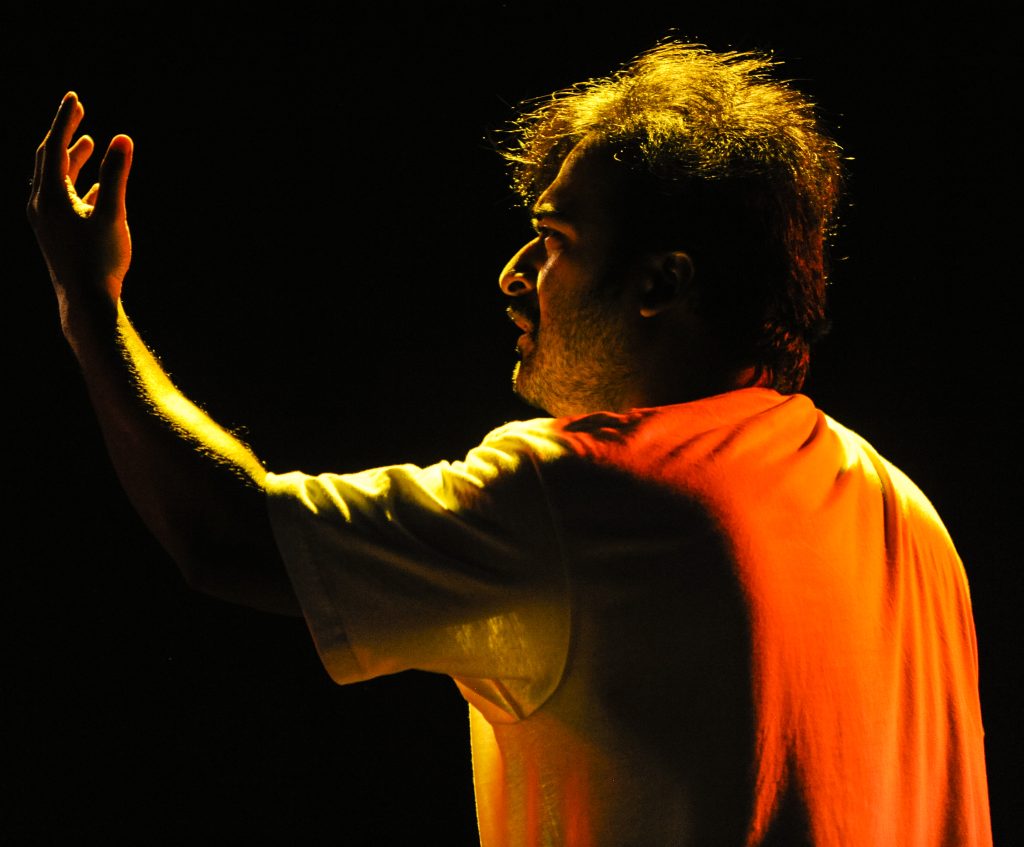
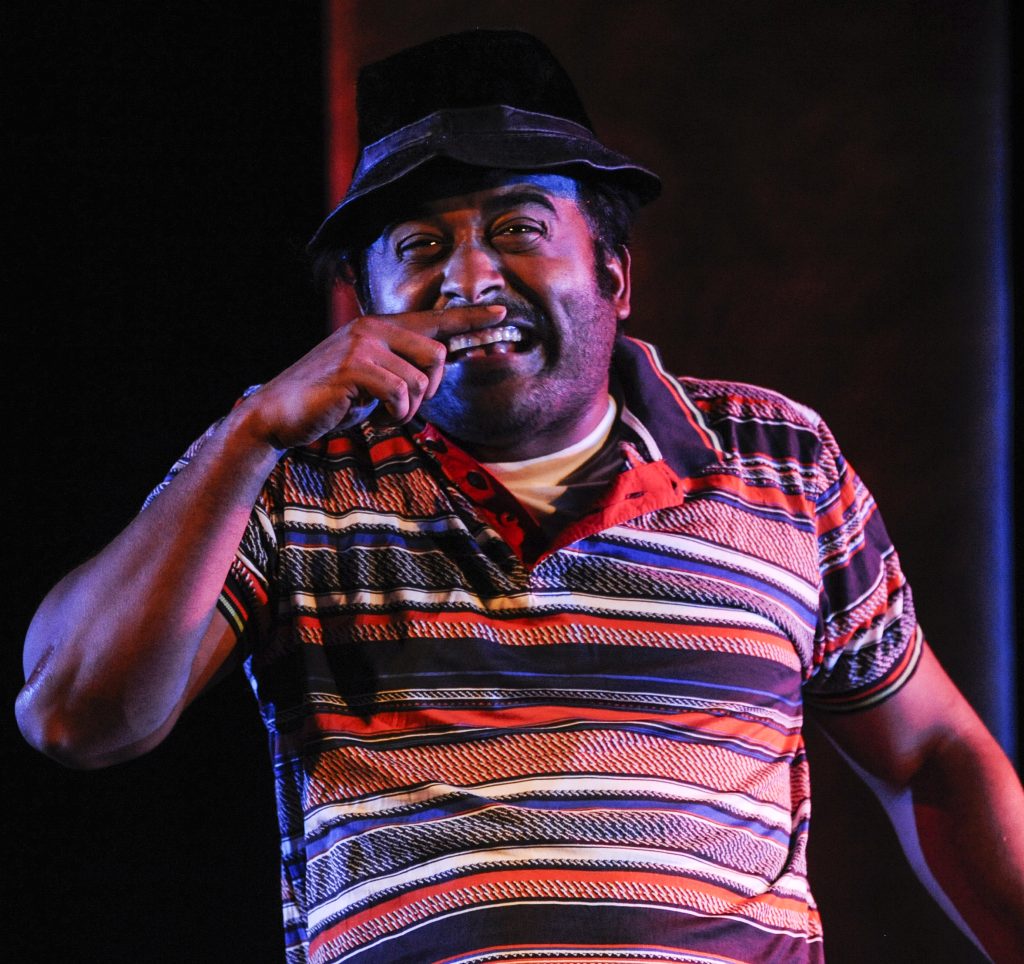
Synopsis
The play opens in a shabby bar run by Meena, where a group of emotionally damaged patrons gathers night after night to numb their pain with drink and denial. Rahul dreams of being a filmmaker, Tanu mourns the loss of her failed boutique, Shaan is a disillusioned ex-soldier, Rupa carries guilt over a past abortion, Ashik is a disgraced businessman, and Rajon seeks peace through honesty after a life of indulgence. Each holds onto a fragile illusion of identity.
Their routine is shattered when Iqbal enters the bar. He is calm yet unnerving, seeming to know the intimate secrets of everyone present. His mission becomes clear: to help each person remove their “mask” and face their truths. As layers peel back, old wounds resurface—love lost, betrayal, self-loathing, and the consequences of denial.
The turning point comes when Moni, Rahul’s former lover, returns, reigniting past emotions and unresolved regrets. Later, a nameless derelict claiming to be a former mayor dies in the bar, symbolizing the fatal cost of lifelong self-deception.
As dawn breaks, a sense of cleansing and rebirth emerges. The characters, once shattered, begin to take steps toward healing. Some seek redemption, others justice, and a few find the courage to live honestly. The bar, once a sanctuary of illusion, becomes a place of transformation
Director’s Note
From the Director – Rocky Khan
The Last Illusion was born from a question: what happens when we strip away the comforting lies we tell ourselves? Inspired by O’Neill’s The Iceman Cometh, this adaptation brings that confrontation into a uniquely Bengali context—a bar where broken dreams linger in the air like stale smoke.
These characters are not fictional; they are all around us—people burdened by failure, regret, and silence. Iqbal is not a man; he is a mirror. He doesn’t speak to break them, but to reveal them. The journey they undergo is painful, but necessary.
Directing this piece was about balance—capturing both the rawness of truth and the subtle beauty of redemption. It’s about the silence between words, the glance across a table, the hesitation before a confession.
I hope the audience walks away not just entertained, but challenged. May we all look inward and ask: What mask am I wearing? And am I ready to remove it?
